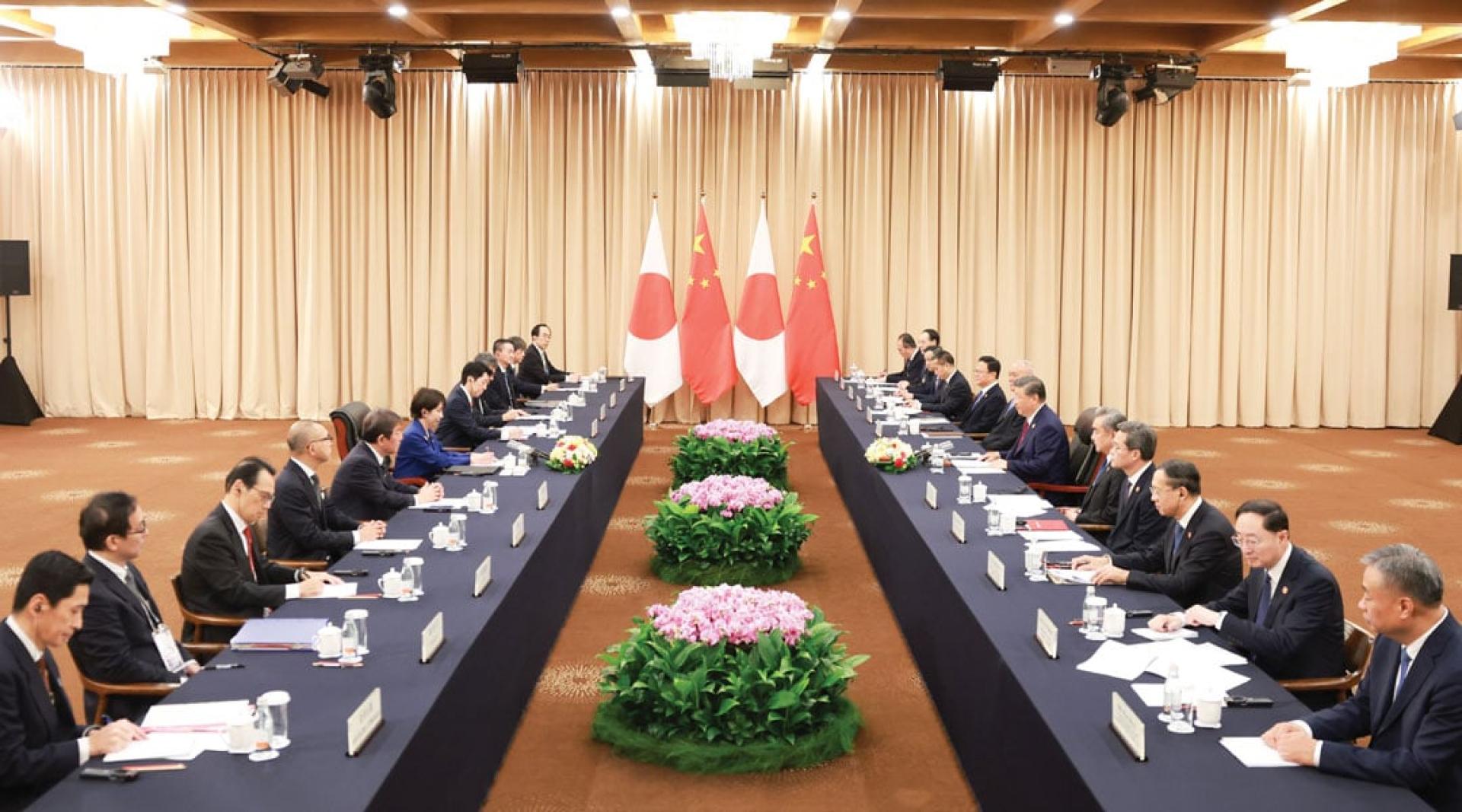Japanese Prime Minister Sanae Takaichi and Chinese leader Xi Jinping held their first-ever leaders' meeting on the sidelines of the Asia-Pacific Economic Cooperation (APEC) summit on the afternoon of the 31st, which lasted about 30 minutes. In addition to conveying that cross-strait relations are crucial for regional stability, Takaichi also expressed concern over China's actions in waters surrounding the Senkaku Islands (Diaoyu Islands).
According to Japan's Sankei Shimbun, the meeting between Sanae Takaichi and Xi Jinping took place in Gyeongju, South Korea. She stated, “Both sides bear an important responsibility for the peace and prosperity of the region and the international community,” and expressed hope to establish a “constructive and stable relationship” with Beijing, continuing dialogue; regarding many unresolved issues between Japan and China, she committed to reducing differences.
When the two discussed the Taiwan issue, Takaichi clearly stated that maintaining regional peace and security is extremely important, and that “maintaining good cross-strait relations” is an indispensable element for ensuring regional stability.
● Xi Jinping Urges Japan to Abide by Important Consensus
According to China’s state media Xinhua News Agency, Xi Jinping said that China is willing to work with Japan to advance a strategic and mutually beneficial relationship, committed to building a constructive and stable China-Japan relationship, and hopes Japan will abide by the explicit provisions on major principles such as history and Taiwan as stipulated in the four China-Japan political documents.
Xi stated that China and Japan are close neighbors separated by only a strip of water, and the long-term, healthy, and stable development of China-Japan relations is in line with the general expectations of both peoples and the international community. China is willing to work with Japan, follow the principles and direction established by the four China-Japan political documents, safeguard the political foundation of bilateral relations, promote a strategic and mutually beneficial relationship, and strive to build a constructive and stable China-Japan relationship that meets the requirements of the new era.
He stressed that China-Japan relations currently face both opportunities and challenges. He hopes that Japan’s new cabinet will form a correct perception of China, cherish the efforts and dedication of elder statesmen and people from all sectors who have contributed to the development of China-Japan relations, and persist in the major direction of peace, friendship, and cooperation between the two countries.
Xi Jinping Put Forward the Following Five Points to Sanae Takaichi:
First, abide by important consensus. Implement the political consensus of “comprehensively advancing a strategic and mutually beneficial relationship,” “being cooperation partners who pose no threat to each other,” and “drawing lessons from history and looking to the future.” Abide by and implement the explicit provisions made in the four China-Japan political documents on major principles concerning history, Taiwan, etc., to ensure that the foundation of China-Japan relations is not damaged or shaken. The Murayama Statement profoundly reflected on Japan’s history of aggression and apologized to the victimized countries; this spirit deserves to be promoted.
Second, adhere to win-win cooperation. The 20th CPC Central Committee's Fourth Plenary Session has mapped out the blueprint for China’s “15th Five-Year Plan” development. There is broad room for China-Japan cooperation. The two countries can strengthen cooperation in high-end manufacturing, digital economy, green development, fiscal and financial sectors, medical and retirement care, and third-party markets, and jointly maintain a multilateral trade system and the stability and smoothness of industrial and supply chains.
Third, promote people-to-people connectivity. Continue communication between governments, political parties, legislative institutions, and deepen and expand cultural and local exchanges to improve public feelings.
Fourth, strengthen multilateral cooperation. Uphold the principles of good-neighborliness and friendship, equality and mutual benefit, and non-interference in internal affairs, practice true multilateralism, and promote the building of an Asia-Pacific community.
Fifth, properly manage differences. Focus on the big picture, seek common ground while reserving differences, and avoid letting conflicts and differences define the bilateral relationship.
